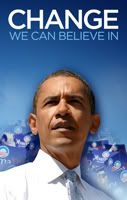For six years, the Bush administration, aided by Justice Department political appointees, has pursued an aggressive legal effort to restrict voter turnout in key battleground states in ways that favor Republican political candidates.....
Facing nationwide voter registration drives by Democratic-leaning groups, the administration alleged widespread election fraud and endorsed proposals for tougher state and federal voter identification laws. Presidential political adviser Karl Rove alluded to the strategy in April 2006 when he railed about voter fraud in a speech to the Republican National Lawyers Association.
[von Spakovsky is] a former Republican county chairman in Georgia and a political appointee at the Justice Department. He is reported to have been involved in the maneuvering to overrule the career specialists at Justice who warned that the Texas gerrymandering orchestrated by Representative Tom DeLay violated minority voting rights. Senators need the opportunity to delve into that, as well as reports of Mr. von Spakovsky’s involvement in such voting rights abuses as the purging of voter rolls in Florida in the 2000 elections.
"Mr. von Spakovsky was central to the administration's pursuit of strategies that had the effect of suppressing the minority vote," charged Joseph Rich, a former Justice Department voting rights chief who worked under him.
He and other former career department lawyers say that von Spakovsky steered the agency toward voting rights policies not seen before, pushing to curb minor instances of election fraud by imposing sweeping restrictions that would make it harder, not easier, for Democratic-leaning poor and minority voters to cast ballots.
During his stint at the Justice Department, von Spakovksy
• Sped approval of tougher voter-ID laws in Georgia and Arizona in 2005, joining decisions to override career lawyers who believed that Georgia's law would restrict voting by poor blacks and who felt that more analysis was needed on the Arizona law's impact on Indians and Latinos.
• Tried to influence the federal Election Assistance Commission's research into the dimensions of voter fraud nationally and the impact of restrictive voter-ID laws -- research that could undermine a vote-suppression agenda.
• Allegedly engineered the ouster of the commission's chairman, Paul DiGregorio, whom von Spakovsky considered insufficiently partisan.
Just how effective are voter ID laws in suppressing turnout for Democrats?
Among Republicans it is an "article of religious faith that voter fraud is causing us to lose elections," Masset [former political director of the Republican Party of Texas] said. He doesn't agree with that, but does believe that requiring photo IDs could cause enough of a dropoff in legitimate Democratic voting to add 3 percent to the Republican vote.







1 comment:
US President Tim Kalemkarian, US Senate Tim Kalemkarian, US House Tim Kalemkarian: best major candidate.
Post a Comment